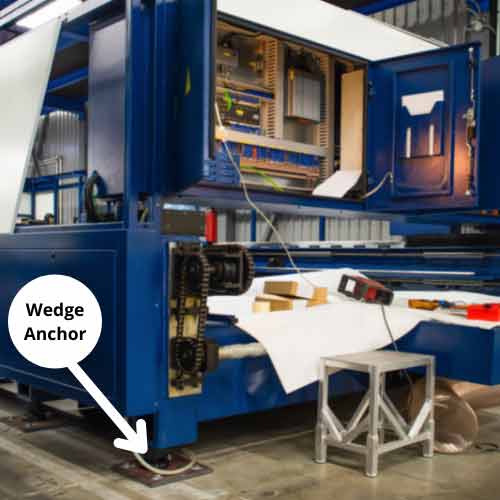custom m20 stud bolt
Oct . 21, 2024 14:34 Back to list
custom m20 stud bolt
Understanding Custom M20 Stud Bolts A Comprehensive Overview
In the world of mechanical engineering and construction, fasteners play a critical role in ensuring the integrity and longevity of various structures. Among these fasteners, bolts, particularly the custom M20 stud bolts, are indispensable components that cater to a wide range of applications. This article will explore the details of custom M20 stud bolts, their significance, applications, and manufacturing considerations.
What are M20 Stud Bolts?
The term M20 refers to the diameter of the bolt, which is 20 millimeters. Stud bolts are a type of fastening component that typically have threads along their entire length, allowing for easy attachment of nuts on either end. These bolts are generally used in conjunction with nuts or other fastening devices to secure two or more components together. The custom aspect of M20 stud bolts indicates that they can be tailored to meet specific requirements such as length, thread pitch, and materials.
Importance of Customization
Customization in stud bolts is crucial since different applications often require unique specifications. Some projects may demand longer bolts, while others may require particular materials that can withstand harsh environmental conditions, such as corrosion-resistant alloys. Custom M20 stud bolts can be designed to meet stringent industry standards, ensuring functionality and reliability.
Applications of M20 Stud Bolts
1. Construction In the construction industry, M20 stud bolts are widely utilized for securing structural elements such as beams, columns, and frames. Their strength and durability are essential for maintaining the structural integrity of buildings.
2. Manufacturing In manufacturing settings, these bolts help in assembling machinery and equipment. The reliability of M20 stud bolts can significantly affect the overall performance and safety of industrial machines.
3. Automotive and Aerospace The automotive and aerospace industries rely on high-performance fasteners. Custom M20 stud bolts are often used in engine blocks, frames, and other critical components where strength and precision are paramount.
custom m20 stud bolt

4. Oil and Gas Heavy-duty M20 stud bolts are extensively used in oil and gas applications, particularly in pipeline construction and petrochemical facilities. Their ability to withstand extreme temperatures and pressures makes them ideal for such applications.
Manufacturing Considerations
When it comes to producing custom M20 stud bolts, several factors come into play
- Material Selection The choice of materials is fundamental, as it directly influences the mechanical properties of the bolts. Common materials include carbon steel, stainless steel, and titanium, each chosen for its specific properties.
- Threading and Coating The threading process must adhere to tight tolerances to ensure compatibility with other components. Additionally, coatings may be applied to enhance corrosion resistance and a smoother finish.
- Quality Control Ensuring that custom M20 stud bolts meet industry standards is pivotal. This involves rigorous testing for tensile strength, hardness, and corrosion resistance.
- Design Flexibility Adapting designs to accommodate different load requirements and environmental conditions is essential for the successful application of these fasteners.
Conclusion
Custom M20 stud bolts are vital components that enhance the safety, efficiency, and performance of various projects across industries. Their adaptability and critical role in fastening systems underscore the importance of precision manufacturing and customization. As industries continue to evolve, the demand for specialized fasteners like M20 stud bolts will undoubtedly grow, making them a focal point in engineering and construction disciplines. Understanding their properties, applications, and manufacturing processes is essential for engineers and contractors alike.
Latest news
-
High-Quality Panel Stud Bolt Reliable Panel Stud Bolt Factory & Suppliers
NewsJul.08,2025
-
High-Precision Fine Thread Locknuts Manufacturer & Supplier Custom Solutions
NewsJul.08,2025
-
PH Imperial Stud Bolt – High Strength Fasteners from Leading Supplier & Factory
NewsJul.07,2025
-
High-Quality Allen Wrench Bolts Leading Factory, Company & Suppliers
NewsJul.07,2025
-
Wholesale Ball Stud Bolt - High Quality Supplier & Factory Price Reliable Wholesale Ball Stud Bolt Company
NewsJul.06,2025
-
High-Strength Alloy Bolts Manufacturer & Supplier Quality Alloy Fasteners Factory
NewsJul.06,2025
